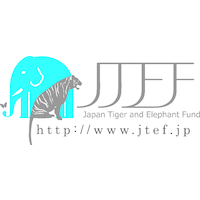Japan
The Japan Tiger and Elephant Fund (JTEF) has been active since 2009. Its core mission is to protect tigers, elephants and Iriomote cats, a critically endangered subspecies of Asia’s leopard cat. Its programmes are financed by three separate funds which existed before JTEF did: one fund for each of the three species it exists to protect.
The work of JTEF is premised on three main considerations: preservation of habitats from human threats; education that encourages coexistence between people and wildlife; and awareness and policy recommendations designed to minimize harm to nature.
Outside of Japan, JTEF manages conservation activities that protect wild tigers and elephants in their natural habitats. Inside Japan, besides protecting Iriomote cats, JTEF plays a major role in supporting Western-based NGOs, not least the Environmental Investigation Agency, United States (EIA), in their effort to quash demand for wildlife products.
For example, JTEF launched a petition on Change.org to pressurize Japan to close their domestic ivory market, ahead of the Tokyo 2020 Olympic Games (now scheduled for July 2021). JTEF has also fully endorsed and become involved in campaigns orchestrated by US-based animal rights NGOs designed to force Tokyo’s Governor Yuriko Koike to close ivory markets: see ‘Tokyo urged to resurrect ivory trade assessment’ and ‘One Year Out from 2020 Tokyo, NGOs Appeal to Tokyo Governor to End Ivory Trade’. And before CITES’ CoP-17, JTEF published a 192-page report titled ‘Why Should the Japanese Domestic Ivory Market Be Closed?’.
Leaders
Masayuki Sakamoto, Executive Director. Kumi Togawa, Chairperson
Governance
There’s a four-person-strong Board.
Finances
Unknown.



